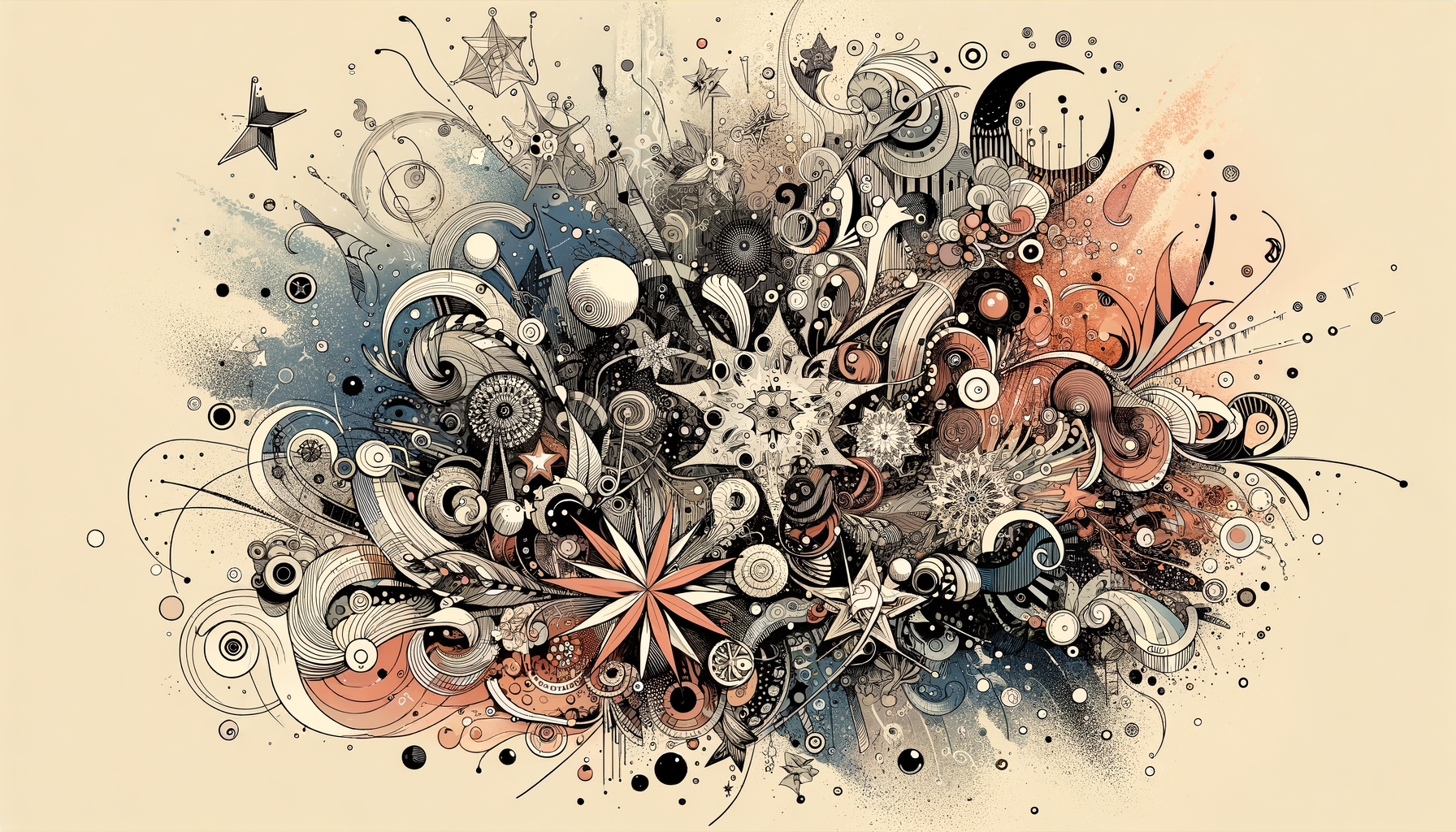I was nineteen years old when I first met Gabriel García Márquez—not in person (because what are the odds of that for a university student in Santiago?), but between the pages of One Hundred Years of Solitude. When I say it changed my life, I know how clichéd that sounds. Confessing that a book turned you inside out is like admitting you used to play the recorder in middle school: it’s earnest but not particularly original. Still, I’ll risk the cliché, because Cien Años de Soledad didn’t just change my view of books. It shifted how I understood relationships—those messy, magical, deeply human connections we all chase.
At the time, I was tangled up in what I’ll generously call "a situationship.” You know the type: when you're too scared to ask, “What are we?” so instead you spend hours overanalyzing their text punctuation. Are five dots in an ellipsis too flirty? How did we survive when WhatsApp read receipts didn’t exist? For months, I hung on every breadcrumb this boy threw my way. But my heart was performing an exhausting juggling act, spinning between hope and uncertainty. Reading Márquez’s masterpiece dropped a literary anvil on my head, and suddenly, I was not only questioning this romantic entanglement—I was questioning the nature of time, love, and why anyone in Macondo thought housing wild animals was a good idea.
Literary Love and the Real World: Lessons from Macondo
Let’s talk about the Buendía family from One Hundred Years of Solitude, a multigenerational cast of characters so dysfunctional they make your family’s Thanksgiving quarrels look like harmony hour on Sesame Street. The Buendías love ferociously, selfishly, and often disastrously. They hold grudges longer than Mariah Carey holds a note and cling to their mistakes like favorite sweaters that should’ve been donated years ago. And yet, Márquez doesn’t paint their dysfunction in disdain. Instead, he shows us their humanity—their flaws made them real in a world overrun by floating grandmothers and insomnia plagues.
Reading about this chaotic family, I found myself nodding (and occasionally cringing) with recognition. It’s not that I had six generations of relatives creating infinite soap operas over forbidden romances and gilded fishes—but I recognized the patterns. The cycles of love that burns too bright and fizzles too quickly. The way heartbreaks echo from one relationship to the next like inherited folklore. Márquez taught me that love isn’t always linear or rational, and sometimes it’s messiest when it feels most magical.
Take this gem: “There is always something left to love.” The boy I was stressing over text messages for? He didn’t deserve to occupy my brain the way Colonel Aureliano Buendía occupies paragraphs upon paragraphs. But I grew to understand that this lingering affection—for someone, for an idea of what they could’ve been—wasn’t necessarily a failure. It was just part of love’s maddening durability.
It’s Not You, It’s the Bananas: Recognizing Cycles
Another thing Márquez does better than anyone? The whole cyclical timeline thing. Time in Macondo is more confused than an ex who sends "I miss you" at 2 a.m. and follows up the next day with radio silence. The Buendías repeat their mistakes over and over, proving that what we don’t learn will eventually loop back to teach us. And wow, was that a wake-up call.
When I looked at my situationship through this lens, I realized I had been stuck in my own version of Macondo’s banana plantation-era chaos. There was a pattern—a frustrating, emotional Groundhog Day—and I hadn’t been brave enough to break it. My affection had hardened into routine, and my attempts to salvage things weren’t about growing together but surviving another loop of our stagnant dynamic.
Márquez handed me permission to change the script. Love doesn’t have to be a tragic inevitability—it can be rewound, rewritten. The cyclical nature of relationships isn’t a curse; it’s a challenge to evolve. (Although, fair warning: Choose evolution sooner rather than later, before you start naming your children Fernanda del Carmen II.)
Why Magical Realism Feels Like Real Life
One of the hallmarks of Márquez’s writing is that everyday life and impossible magic coexist effortlessly. A man ascends to the heavens with a basket of laundry, and everyone just shrugs like it’s NBD. It’s whimsical and wild and, somehow, truer than realism’s flat terrain. What I took from that is this: relationships are their own kind of magical realism.
Think about it. Every healthy relationship has its own surreal moments—tiny miracles that feel improbable but are as real as the laundry on the line. It’s when someone remembers your favorite kind of tea without asking. Or when you’ve been together so long that they can finish your sentences but still find you unpredictable enough to laugh at your jokes. Márquez celebrates that surreal aspect of love and reminds us that, despite the hurricanes and drama, the magic is what makes it worthwhile.
Real love isn’t choreographed perfection. It has quirks and contradictions. It’s both the mariposas (the yellow butterflies!) and the work of sweeping the floor after they’ve scattered everywhere. Love, like Márquez, thrives in the tension between what’s extraordinary and what’s mundane.
Breaking Up with Past Me
Here’s the kicker: when I finally ended my situationship—and honestly, “ended” feels generous because I think he ghosted me first—I walked away with more gratitude than anger. And part of that was because I’d reframed things. Would the old, pre-Solitude-reading Carmen have loved differently? Of course. But my relationship had been a life chapter where I read more than I wrote. Márquez reminded me that every love story doesn’t have to be forever. Some are just as meaningful when they’re fleeting and imperfect.
I didn’t need closure in the traditional sense. I didn’t need a teary confession or an apology. (Although, to his credit, he did send a message months later saying, “Hope you’ve been good,”—to which, if I’m recalling correctly, I wrote back, “Who is this?” Small victories!) What I needed was the recognition of cycles, the promise of evolution, and the comfort of knowing that a messy Macondo love wasn’t a personal failure.
Love Is … Well, Complicated
So here’s the takeaway, the piece of advice that Márquez and I are teaming up to give you: love is magical and messy and somewhere between ascending to heaven mid-laundry and biting your tongue during a passive-aggressive argument about who left the lights on. It’s not going to be as perfect as a romance novel, but it’s also not as doomed as the Buendía family’s overzealous attempts to preserve their bloodline. Thank goodness for that.
One Hundred Years of Solitude didn’t just teach me to fall in love with literature. It taught me to embrace the rhythm of relationships—the good, the bad, and the bizarre. Love will never look like a perfectly curated Instagram grid, and honestly, thank God for that too. It’s unedited and raw and occasionally smells like bananas (metaphorically or otherwise). It’s meant to be lived.
And me? I’m still learning. Every love is part of my personal Macondo, and every break-up—if you look hard enough—leaves behind something to love. Or at the very least, a good story.




















